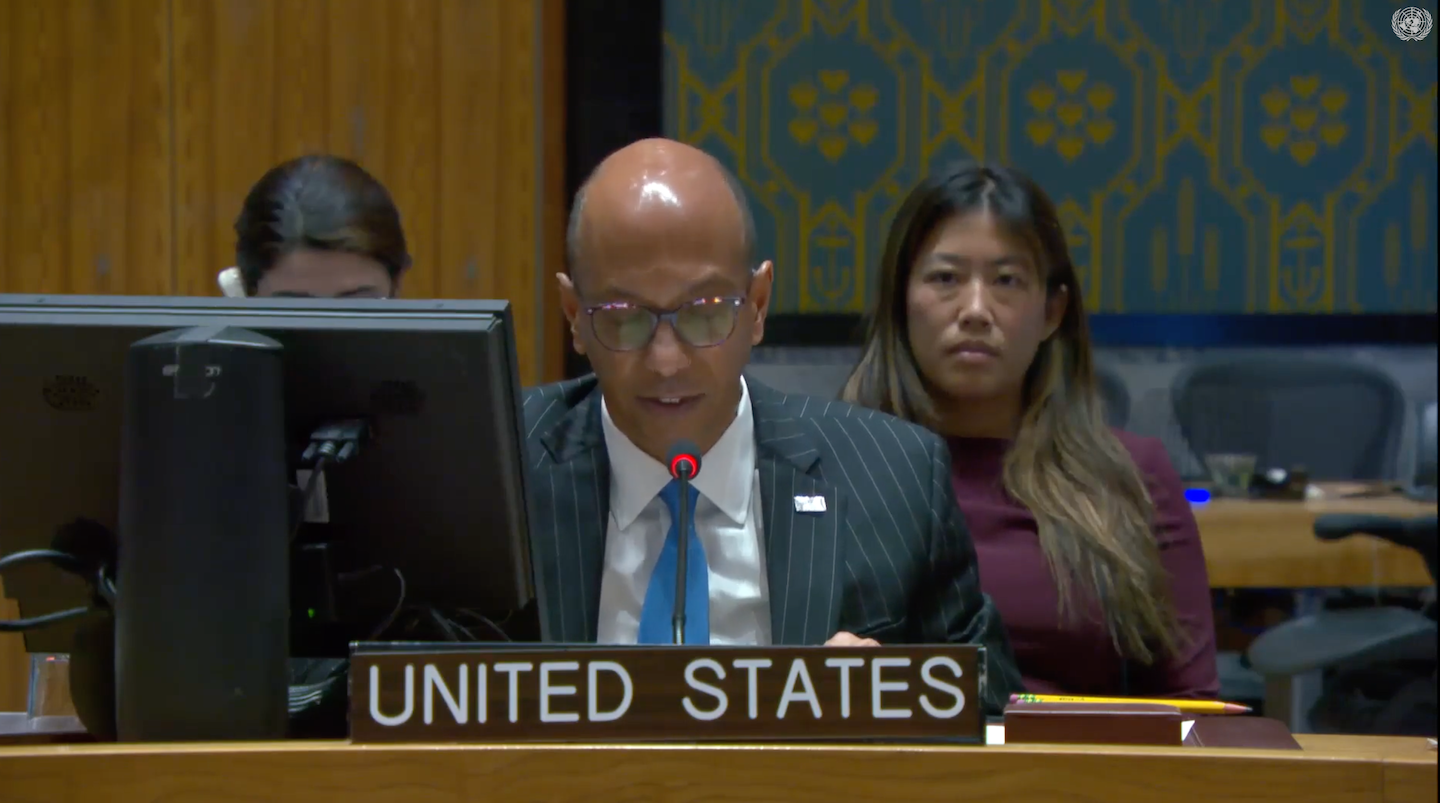Latest News

U.S. Deputy Ambassador Robert Wood spoke during a meeting of the United Nations Security Council on May 20. Screenshot via United Nations
In a meeting of the United Nations Security Council, the U.S representative alleged that Russia launched what is likely a new anti-satellite mission last week. U.S. Deputy Ambassador Robert Wood spoke during a meeting of the United Nations Security Council on Monday, saying Russia launched the satellite on May 16.
“Russia launched the satellite into Low-Earth Orbit that the United States assesses is likely a counterspace weapon presumably capable of attacking other satellites in Low-Earth Orbit,” Wood said. “Russia deployed this new counterspace weapon into the same orbit as a U.S. government satellite.”
Wood also alleged that Russia is looking to distract global attention from its own efforts to put a nuclear weapon into orbit. He did not indicate the satellite launched last week had nuclear capabilities, but said Russia is developing “a new satellite carrying a nuclear device.”
This comes after the White House said in February that Russia is developing an anti-satellite capability, but said it is not an active capability. Russia previously tested an anti-satellite weapon against one of its own defunct satellites in orbit in 2021.
It also comes after Russia vetoed a ban last month on nuclear weapons in outer space.
The U.S. and Japan led a resolution in April that would have proposed a ban on the use of nuclear weapons in outer space, affirming obligations under the Outer Space Treaty. 13 members of the Security Council voted in favor, China abstained, and Russia vetoed the resolution.
Russia is part of the Outer Space Treaty of 1967, which prohibits nations from putting nuclear weapons or weapons of mass destruction in space.
Russia’s ambassador to the U.N. Vassily Nebenzia, defended Russia’s “no” vote on Monday, saying the U.S. and Japanese resolution was “blatantly politicized” and motivated “to portray the Russian Federation in an unfavorable light.”
Russia put forward its own version of the resolution that reaffirmed the obligation not to place any kind of weapon in outer space, including those of mass destruction, but it was not adopted.
“If they fail to support this, then they will clearly show that their main priority remains keeping a freedom of leeway for themselves to expedite the militarization of outer space,” Nebenzia said.
Algeria, Ecuador, China, Guyana, Mozambique, Sierra Leone, and Russia voted in favor. France, Japan, Malta, Republic of Korea, Slovenia, United Kingdom, and the United States voted against, and Switzerland abstained.
Wood said that members of the Security Council should be skeptical of Russia’s statements and intentions with this resolution after Russia’s veto last month.
“Russia has sought to distract from its dangerous efforts to put a nuclear weapon into orbit. The culmination of Russia’s campaign of diplomatic gaslighting and dissembling is the text before us today,” Wood said. “Russia’s resolution does not achieve the simple task that we set out to achieve several months ago, to reaffirm the basic obligations of the Outer Space Treaty and avoid a nuclear arms race in space.”
Get the latest Via Satellite news!
Subscribe Now